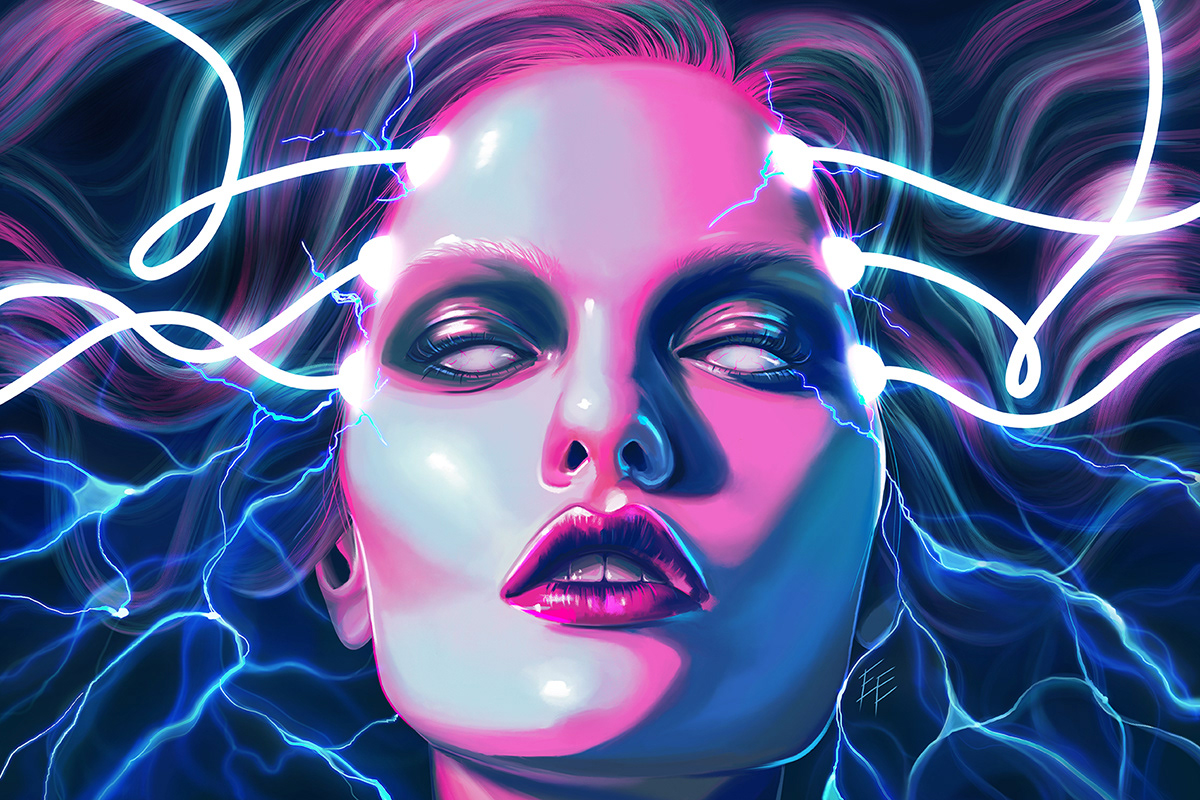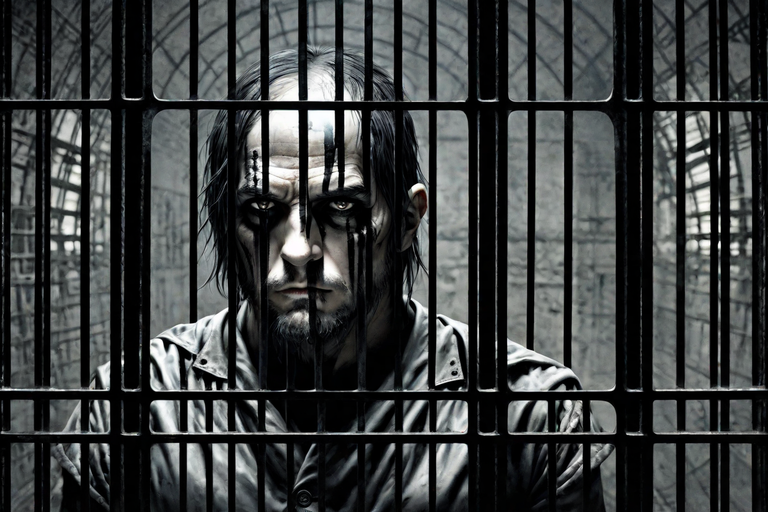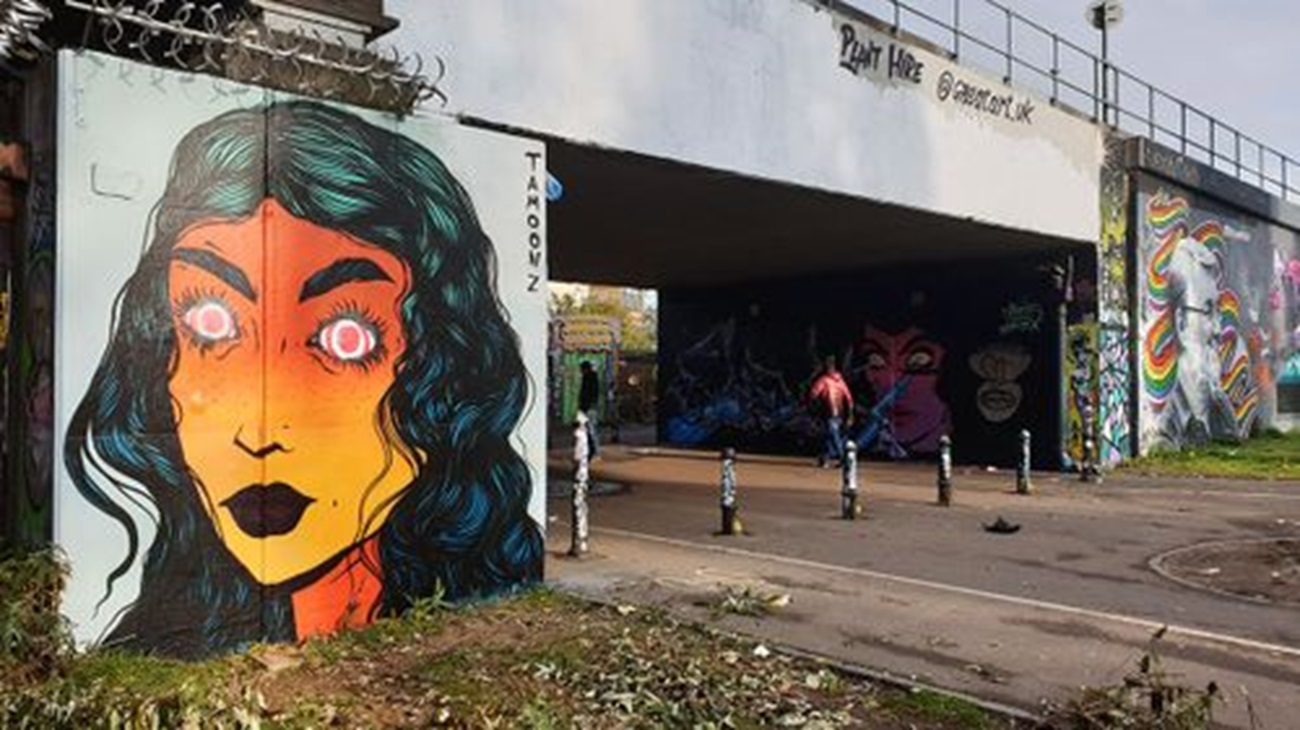Anything we do that is purposeful is part of this simulation. Our purposeful activity both perpetuates the simulation and is the simulation and this is a very peculiar thing to consider. For a start, we probably won’t acknowledge that there is a simulation – “Simulation – what simulation?” we ask, and for the next thing – even if we are OK about this suggestion – we would be far more inclined to believe that we live within a simulation then we are to see that we actually are the simulation! That’s a lot harder to process…
This is – we might say – a version of the Philip K Dickian motif of the android who does not know themselves to be an android – we are ‘simulations who don’t know that we are only simulations’. This is – therefore – more than just a plot-device for a science fiction story, it’s our core existential dilemma. As dilemmas go it’s got to be the great grandmother of them all. As dilemmas go, it’s completely awesome.
To realise that we’re living within a simulation is one thing, as we’ve just said, but how the hell do we deal with the realisation (if it were to come our way) that we ourselves are the simulation? What are we to do about that? Where would we go from here? This question itself exemplifies the dilemma of course because everything we do as we’ve just said both creates, and perpetuates, the simulation. The simulation is our purposeful doing, after all, so anything we try to do about it is also the simulation. More comprehensively, the simulation is our rational thinking along with the goals and strategies that come out of this rational thinking. This isn’t to say that that running the simulation is useless, that it has no utility for us; wherever the rational simulation approximates our physical concrete situation then it can of course be useful. That’s the whole point of our ability to run simulations – that doing so should give us the edge when it comes to the bio-survival game that we’re all playing.
From a biological, evolutionary point of view this simulation-creating capacity of ours, this capacity to project a positive reality, has served us very well. The rational simulation has served us very well – it has given us the jump on the competition. From another perspective however we can say that by using this extraordinarily useful tool in an incautious, uncritical or lazy way we have allowed it to turn against us, which it does (again) in the most extraordinarily effective fashion. This device has given us a jump on the opposition in a big way it’s true, but what it’s also done, at one at the same time, is to trap us in a false reality. The simulation isn’t real, after all (it can’t be real because reality itself cannot be simulated). Reality itself is non-simulatable – in other words, no matter how detailed or sophisticated our model / simulation might be, it will never equal the real thing. To paraphrase Robert Anton Wilson, ‘the only thing equal to the real thing is the real thing’. The simulated thing is never going to be it…
Even fifty years ago, this sort of an idea would have been pretty much incomprehensible to us (if couched in this particular language, at any rate) in the third decade of the 21st century however these concepts are very familiar to us. We’re entirely familiar with the idea of living in a simulated universe, with the idea of being trapped in a manufactured Matrix-style ‘false reality’, even if we don’t directly apply it to our own lives. We haven’t – as we’ve already said – grasped the true psychological implications of this the quintessential Gnostic myth, which is, as we’ve said, that we are not just in the simulation, we are the simulation. This corresponds to what Jesus says in the Gospel of Thomas (Saying 3) – “But if you do not know yourselves, then you are in poverty, and you are poverty.” [If we do not know who we really are, then not only do we exist in the simulation but also we are that simulation.] The one who seeks to escape the illusion is also an illusion, the dreamer’s endeavour to escape from the dream is just another part of the dream – it’s the ‘escaping from the dream’ part of the dream.
This is where the dilemma lies – we want to escape from the device that we have created (because being wholly lacking in freedom – as we are in the game – is intolerable) but at the same time we can’t afford to get rid of the device that imprisons us because the same ‘illusion-projecting device’ which projects the false or illusory world that we are trapped in is also the same device that projects the illusion of the one who is trying to escape from the illusory world. If this isn’t a dilemma, then what is? It’s not that we ‘want to be free’ therefore (we don’t want it we fear it) but rather that we want to believe that we want to be free. That’s the narrative we want to create. This narrative is the most valuable of all commodities when it comes to our solution to the dilemma – if sincerity is dangerous (because it, like curiosity, can kill the cat) and if an absence of sincerity which we are conscious of is intolerable then the ideal answer, the ideal solution to the dilemma, is to be insincere but fully believe that we are not. The solution to the dilemma is – in other words – to buy into the simulation even more than we had before.
The motivation not to see the truth is what lies at the root of all our activities – we play our games, and we get lost in our games. In our games, purposefulness isn’t what creates and maintains the simulation, it’s what may (hopefully) enable us to free ourselves from the problems that we are beset with. Purposefulness – we say – is what will enable us to achieve great things. Playing the game thus fuels the game. The idea that there might be something other than purposefulness is the last thing that’s ever going to occur to us. The game-implanted desire to ‘obtain our goals’ is what we see as our will, and we believe that if we have enough will-power then this will enable us to achieve anything. This is the mantra of our rational-purposeful society. The desire to obtain our goals is an inversion of will however – the more intensely we experience the desire to win, the desire to succeed, the more we are being ‘manipulated by the simulation’ and so what’s really happening here is that we are mistaking ‘the will of the simulation’ for our own motivation. We are ‘identifying with the machine’.
None of this has anything to do with freedom or autonomy though – we think we’re enacting our will whilst the truth is that we’re being played. The more we struggle to escape, or struggle to achieve a desired outcome (which is the other side of the coin) the more we are enacting the will of the simulation and the will of the simulation is to perpetuate itself. This is a mechanical not a conscious will however – the simulation doesn’t seek to maintain itself for any ‘reason’, it seeks to maintain itself because that’s all it can do. It seeks to maintain itself because that’s what it is – it’s a mechanism for maintaining itself. It’s a virus, in other words. The simulation always seeks to maintain itself because this is how the logic of the situation works, because this is the only way that the logic of the situation can work. There’s no ‘sense’ in this at all, but – then again – machines don’t need sense…
Being purposeful all the time tightens the grip of the trap we’re in and the tighter it squeezes the more we struggle, via our directed or goal-directed activity. This is the archetypal ‘finger trap’, therefore – our controlling hurts us and so we control all the more so as to try to get out of the noose, which is of course our automatic reflex. The trap is the ‘mechanical life’ – the regimented, standardised or generic life that we have fallen into leaves us no space to be spontaneous, no space to do or think or perceive anything that doesn’t occur in accordance with a rule, and the reason living in this way (i.e., ‘living by numbers’) causes us to suffer is because who we are in our essence isn’t definable in terms of the rules which determine the artificial world that we spend our lives in. It isn’t definable and so it isn’t allowed! Our true nature hasn’t any precedence (within the terms of the system of logic which governs our conditioned existence) and so it can’t find expression – the generic life has no space in it for anything non-generic, anything unique, and so the non-generic and the unique gets filtered out every time. Life itself gets filtered out every time, in other words.
These are the conditions within which we live and these are also the conditions that create more and more neurotic suffering, which we then, as mental health-care workers, try to ‘manage out of existence’ with yet more purposefulness, with yet more rationality, with yet more ‘prescribed methods’. This is after all the dilemma we find ourselves in – we want some sort of exit (or at the very least relief) from the pain we’re in, but at the same time we don’t want to let go of the mechanical self we think we are…
Art – Benjamin Mitchley, Alive, (2020). Augmented reality, image taken from theviewing room.co






